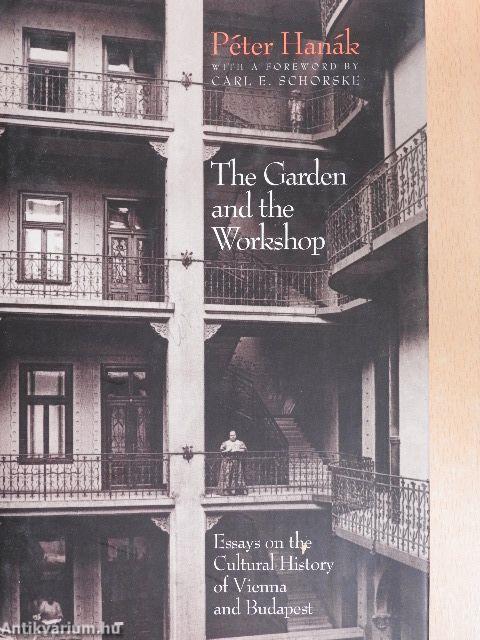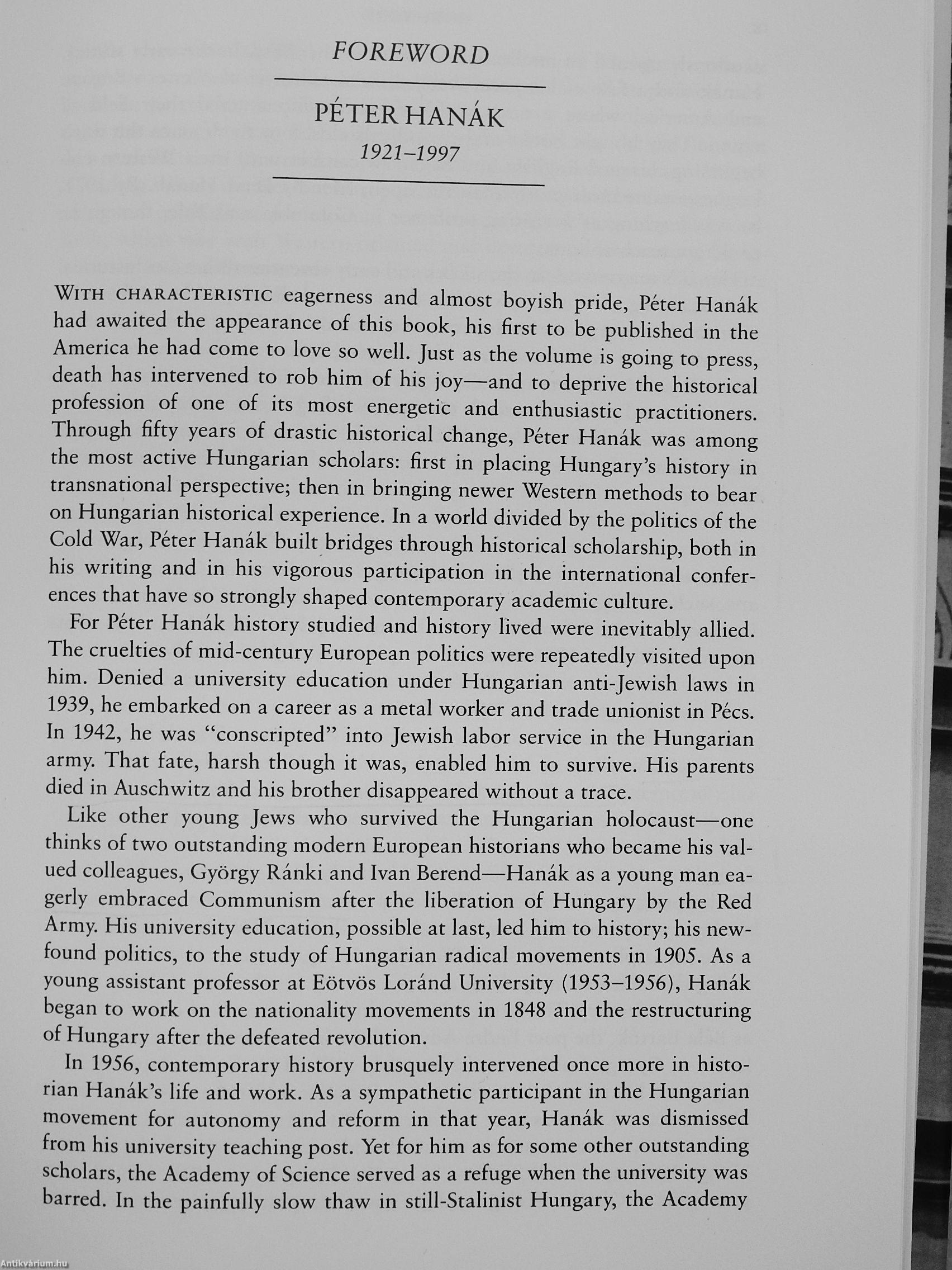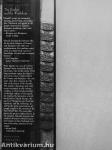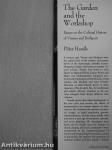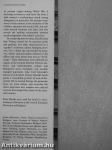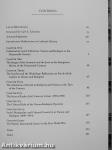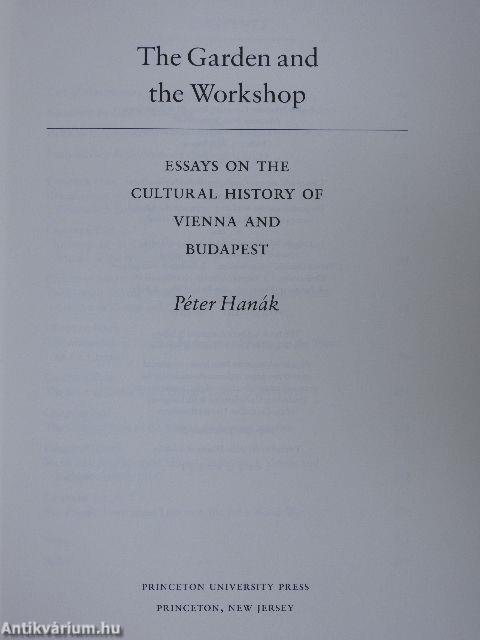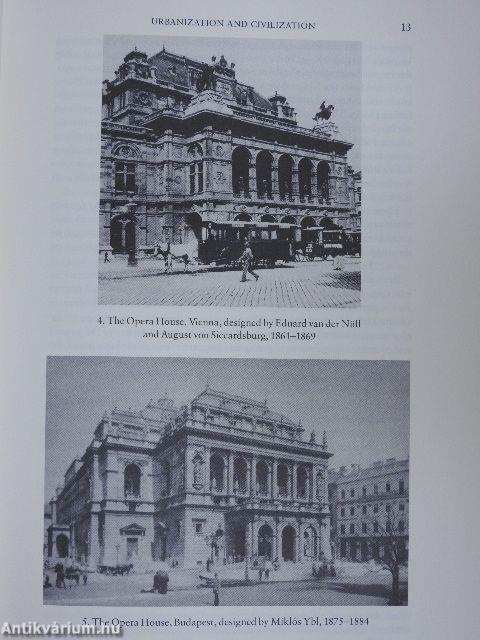1.067.062
kiadvánnyal nyújtjuk Magyarország legnagyobb antikvár könyv-kínálatát

VISSZA
A TETEJÉRE
JAVASLATOKÉszre-
vételek
The Garden and the Workshop
Essays on the cultural history of Vienna and Budapest
| Kiadó: | Princeton University Press |
|---|---|
| Kiadás helye: | New Jersey |
| Kiadás éve: | |
| Kötés típusa: | Fűzött kemény papírkötés |
| Oldalszám: | 249 oldal |
| Sorozatcím: | |
| Kötetszám: | |
| Nyelv: | Angol |
| Méret: | 24 cm x 16 cm |
| ISBN: | 0-691-01554-6 |
| Megjegyzés: | Fekete-fehér fotókkal. |
naponta értesítjük a beérkező friss
kiadványokról
naponta értesítjük a beérkező friss
kiadványokról
Előszó
TovábbFülszöveg
advance praise for
Tlie Garden and tke Workskop
"Hanák's essays are eminently humane, penetrating, and suggestive. The book will appeal to all people interested in Central European problems, cities, and belles lettres." —Klemens von Klemperer Smith College
"Hanák distinguishes between the fîn-de-siecle cultures of Vienna and Budapest with skill and sophistication. He combines sensitivity to culture with extensive knowledge of social and economic history." —Lee Congdon James Madison University
"Péter Hanák was one of Central Europe's most respected cultural historians, who in the course of his long academic career developed a marvelous sense of appreciation for Vienna and Budapest—the two sister cities that compete for the title of the Queen of the Danube. The erudite, charming, and witty essays contained in this volume combine a refined understanding of the high culture of the region, the explosively innovative arts of fin-de-siecle Central Europe, the gaiety of Hungarian and... Tovább
Fülszöveg
advance praise for
Tlie Garden and tke Workskop
"Hanák's essays are eminently humane, penetrating, and suggestive. The book will appeal to all people interested in Central European problems, cities, and belles lettres." —Klemens von Klemperer Smith College
"Hanák distinguishes between the fîn-de-siecle cultures of Vienna and Budapest with skill and sophistication. He combines sensitivity to culture with extensive knowledge of social and economic history." —Lee Congdon James Madison University
"Péter Hanák was one of Central Europe's most respected cultural historians, who in the course of his long academic career developed a marvelous sense of appreciation for Vienna and Budapest—the two sister cities that compete for the title of the Queen of the Danube. The erudite, charming, and witty essays contained in this volume combine a refined understanding of the high culture of the region, the explosively innovative arts of fin-de-siecle Central Europe, the gaiety of Hungarian and Austrian operettas, and the sufferings, as well as the great expectations, of people caught in the turmoil of the First World War. The essay that leaves the greatest impression is, in my opinion, Hanák's account and analysis of letters written by peasant women to their husbands and sons in far-away prisoner-of-war camps.
—Istvan Deak Columbia University
PRINCETON UNIVERSITY PRESS
ne
and
Garden tne
Worksnop
Essays on tlie Cultural History of Vienna and Budapest
.^éter Hanák
ri
A century ago, Vienna and Budapest were the capital cities of the western and eastern halves of the increasingly unstable Austro-Hungarian empire and scenes of intense cultural activity. Vienna was home to such figures as Sigmund Freud, Gustav Klimt, and Hugo von Hofmannsthal; Budapest produced such luminaries as Béla Bartók, Georg Lukács, and Michael and Karl Polanyi. However, as Péter Hanák shows in these vignettes of fin-de-siecle life, the intellectual and artistic vibrancy common to the two cities emerged from deeply different civic cultures.
Hanák surveys the urban development of the two cities and reviews the effects of modernization on various aspects of their cultures. He examines the process of physical change, as rapid population growth, industrialization, and the rising middle class ushered in a new age of tenements, suburbs, and town planning. He investigates how death and its rituals—once the domain of church, family, and local community—were transformed by the commercialization of burials and the growing bureaucratic control of graveyards. He explores the mentality of common soldiers and their families—mostly
(continued on back flap)
(fotjtmued from front flap}
of peasant origin—during World War I, detecting in letters to and from the front a shift toward a revolutionary mood among Hungarians in particular. He presents snapshots of such subjects as the mentality of the nobility, operettas and musical life, and attitudes toward Germans and Jews, and also reveals the striking relationship between social marginality and cultural creativity.
In comparing the two cities, Hanák notes that Vienna, famed for its spacious parks and gardens, was often characterized as a "garden" of esoteric culture. Budapest, however, was a dense city surrounded by factories, whose cultural leaders referred to the offices and cafés where they met as "workshops." These differences were reflected, he argues, in the contrast between Vienna's aesthetic and individualistic culture and Budapest's more moralistic and socially engaged approach. Like Carl Schorske's famous Fin-de-Siecle Vienna, Hanák's book paints a remarkable portrait of turn-of-the-century life in Central Europe. Its particular focus on mass culture and everyday life offers important new insights into cultural currents that shaped the course of the twentieth century.
Péter Hanák was, until his death in 1997, Professor of History at the Central European University in Budapest.
Jacket illustration: Front: Typical courtyard in Budapest, 1900. Courtesy of Magyar Nemzeti Muzeum Történeti Fényképtára, Budapest. Back: Part of the Majolika House and adjacent apartment building, Linker Wienzeile 40, both designed by Otto Wagner, 1899-1900. Courtesy Jalsovszky, K.u.K.-Kaiseriiches Wien, königliches Budapest, @ Verlag Christian Brandstatter, Vienna.
Jacket design by Tracy Baldwin
li
s
I Vissza
Péter Hanák
Péter Hanák műveinek az Antikvarium.hu-n kapható vagy előjegyezhető listáját itt tekintheti meg: Péter Hanák könyvek, művekMegvásárolható példányok
Nincs megvásárolható példány
A könyv összes megrendelhető példánya elfogyott. Ha kívánja, előjegyezheti a könyvet, és amint a könyv egy újabb példánya elérhető lesz, értesítjük.



